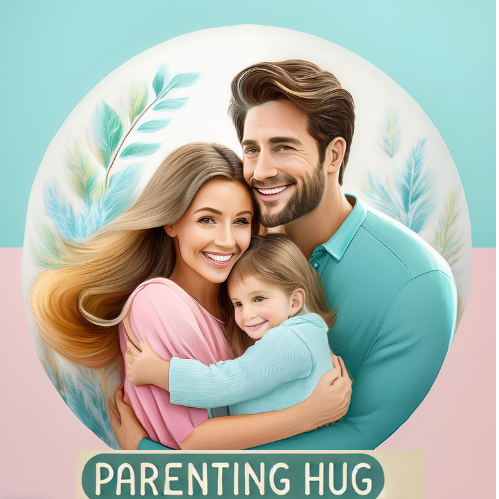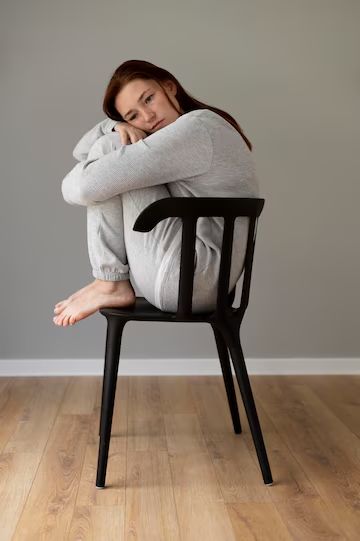what is Anxiety?
Anxiety is a term we hear frequently in modern society, but it’s often misunderstood or trivialized. While everyone experiences occasional stress or worry, anxiety as a disorder is far more intense and can be debilitating. In this blog, we’ll explore the deeper aspects of it that aren’t commonly discussed, including its underlying causes, unique triggers, and unconventional ways to manage and cope with it.
What Is Anxiety?
Anxiety is a natural response to stress or danger and is characterized by feelings of tension, worry, and physical changes like an increased heart rate. However, when these feelings become excessive, persistent, and interfere with daily life, they cross into the realm of anxiety disorders.
Anxiety disorders are the most common mental health disorders, affecting millions of people globally. These disorders can manifest in various ways, from generalized anxiety disorder (GAD) to panic attacks, social anxiety, and more. Understanding the nuances of these different forms of anxiety is crucial to managing them effectively.
Types of Anxiety Disorders
While generalized anxiety disorder (GAD) is perhaps the most well-known, there are several distinct types of anxiety disorders, each with its own symptoms and triggers:
- Generalized Anxiety Disorder (GAD): This condition is marked by chronic and exaggerated worry about everyday life activities. People with GAD often expect the worst, even when there’s no apparent reason for concern.
- Social Anxiety Disorder: Characterized by extreme fear of being judged, embarrassed, or humiliated in social situations. People with social anxiety often avoid gatherings or suffer silently in such environments.
- Panic Disorder: Sudden and intense episodes of fear, known as panic attacks, characterize this disorder. These attacks are often accompanied by physical symptoms such as a racing heart, sweating, trembling, and shortness of breath.
- Phobias: Specific phobias involve intense fear of a particular object or situation (e.g., flying, heights, or spiders). The fear is disproportionate to the actual threat posed but can cause severe anxiety.
Causes of it: More Than Just Stress
Anxiety is often seen as a result of stress, but it’s usually more complex than that. Understanding the various causes of anxiety helps in finding the right coping strategies.
- Biological Factors: Genetics play a significant role in anxiety. If a family member has an anxiety disorder, you’re more likely to develop one as well. Additionally, imbalances in brain chemicals like serotonin and dopamine can also contribute to anxiety disorders.
- Environmental Stressors: Life events like financial difficulties, job stress, divorce, or the death of a loved one can trigger anxiety. Long-term exposure to stressful situations, even low-level stress, can accumulate over time and result in anxiety disorders.
- Childhood Trauma: Early exposure to trauma or neglect can have lasting effects on brain development and emotional regulation. People who have experienced trauma in childhood are more prone to developing anxiety disorders later in life.
- Chronic Illness: Living with chronic illness can also lead to anxiety. Conditions such as heart disease, diabetes, and respiratory problems often carry mental health complications as individuals struggle to manage their physical health.
- Substance Abuse: Misuse of alcohol or drugs can either cause or worsen anxiety. Substance use often becomes a coping mechanism, which can result in dependence and further complicate the anxiety.
Symptoms of it: Recognizing the Unseen
While most people are aware of the more obvious symptoms of anxiety—like excessive worry or fear—there are many less discussed symptoms that are equally debilitating.
- Physical Symptoms: Anxiety can cause a range of physical symptoms such as headaches, muscle tension, digestive issues, and even dizziness. Many individuals with anxiety also suffer from chronic pain conditions like fibromyalgia.
- Cognitive Distortions: Anxiety often leads to distorted thinking, where the individual sees everything in a negative light. They might overestimate the likelihood of a negative outcome or believe that any small mistake will lead to disaster.
- Avoidance: One of the most harmful symptoms of anxiety is avoidance. People may avoid activities, places, or people that trigger their anxiety, which in turn reinforces the disorder and reduces quality of life.
- Insomnia and Fatigue: Sleep disturbances are common with anxiety. Individuals may find it difficult to fall asleep, stay asleep, or experience restful sleep. Ironically, sleep deprivation worsens anxiety, creating a vicious cycle.
Unique Triggers of it That You Might Not Expect
Not every anxiety trigger is obvious. Many times, anxiety is caused by seemingly innocuous or overlooked aspects of our daily lives. Here are some unique triggers that are less commonly discussed:
- Caffeine: Many people rely on their morning coffee to start the day, but caffeine can exacerbate anxiety symptoms. High doses of caffeine stimulate the nervous system and can trigger feelings of restlessness or panic in sensitive individuals.
- Social Media: The constant barrage of information, comparison, and sometimes toxic interactions on social media platforms can significantly increase anxiety. Social media creates a sense of urgency and pressure to keep up, which can lead to heightened stress levels.
- Clutter: Living or working in a disorganized or cluttered environment can subconsciously contribute to feelings of overwhelm and anxiety. Decluttering and organizing your surroundings can have a surprisingly calming effect.
- Dehydration: A less commonly known trigger, dehydration can cause heart palpitations, dizziness, and confusion, which can mimic or exacerbate anxiety symptoms.
Coping Strategies for it: What Works and What Doesn’t
Traditional advice for managing anxiety usually involves therapy, medication, and lifestyle changes. However, there are also some unique strategies that may not be as well-known but are highly effective.
- Mindful Movement: Exercise is a well-documented remedy for anxiety, but not all exercise is created equal. Activities like yoga, tai chi, and Pilates incorporate mindfulness into physical movement, which can help calm the nervous system.
- Grounding Techniques: When anxiety strikes, grounding techniques—such as focusing on the five senses or counting objects around you—can help bring you back to the present moment and reduce the sense of panic.
- Art Therapy: Engaging in creative activities like painting, drawing, or sculpting allows you to express emotions in a non-verbal way. Many people find that artistic expression provides relief from the constant chatter of anxious thoughts.
- Limiting News Consumption: Constant exposure to negative news can heighten anxiety. It’s important to stay informed, but limiting your consumption of news media—especially during stressful periods—can help maintain emotional balance.
- Breathwork: Deep, controlled breathing techniques are one of the simplest and most effective ways to manage acute anxiety. Slow, diaphragmatic breathing calms the body’s fight-or-flight response and lowers heart rate and blood pressure.
Reducing the Stigma Around it
One of the major hurdles in addressing anxiety is the stigma that surrounds mental health conditions. Many people avoid seeking help due to fear of being judged or misunderstood. Here’s how we can collectively work to reduce that stigma:
- Open Conversations: Talking openly about anxiety, both online and in personal circles, helps normalize the experience. The more we talk about mental health, the less taboo it becomes.
- Empathy and Support: Offering a listening ear or simply acknowledging someone’s experience with anxiety can make a significant difference. Sometimes, all a person needs is to know that they’re not alone.
- Education: Teaching yourself and others about anxiety disorders—how they work and how they can be managed—helps break down myths and reduces misinformation.
Conclusion
Anxiety is far more complex than just feeling nervous or worried. Its causes are multifaceted, its symptoms are varied, and its effects can be long-lasting. But with the right coping strategies, understanding, and support, managing anxiety is possible. By acknowledging both common and unique triggers, adopting healthy coping strategies, and seeking help when necessary, individuals can lead fulfilling lives despite anxiety.
You can read more about teen suicide here parenting.com

